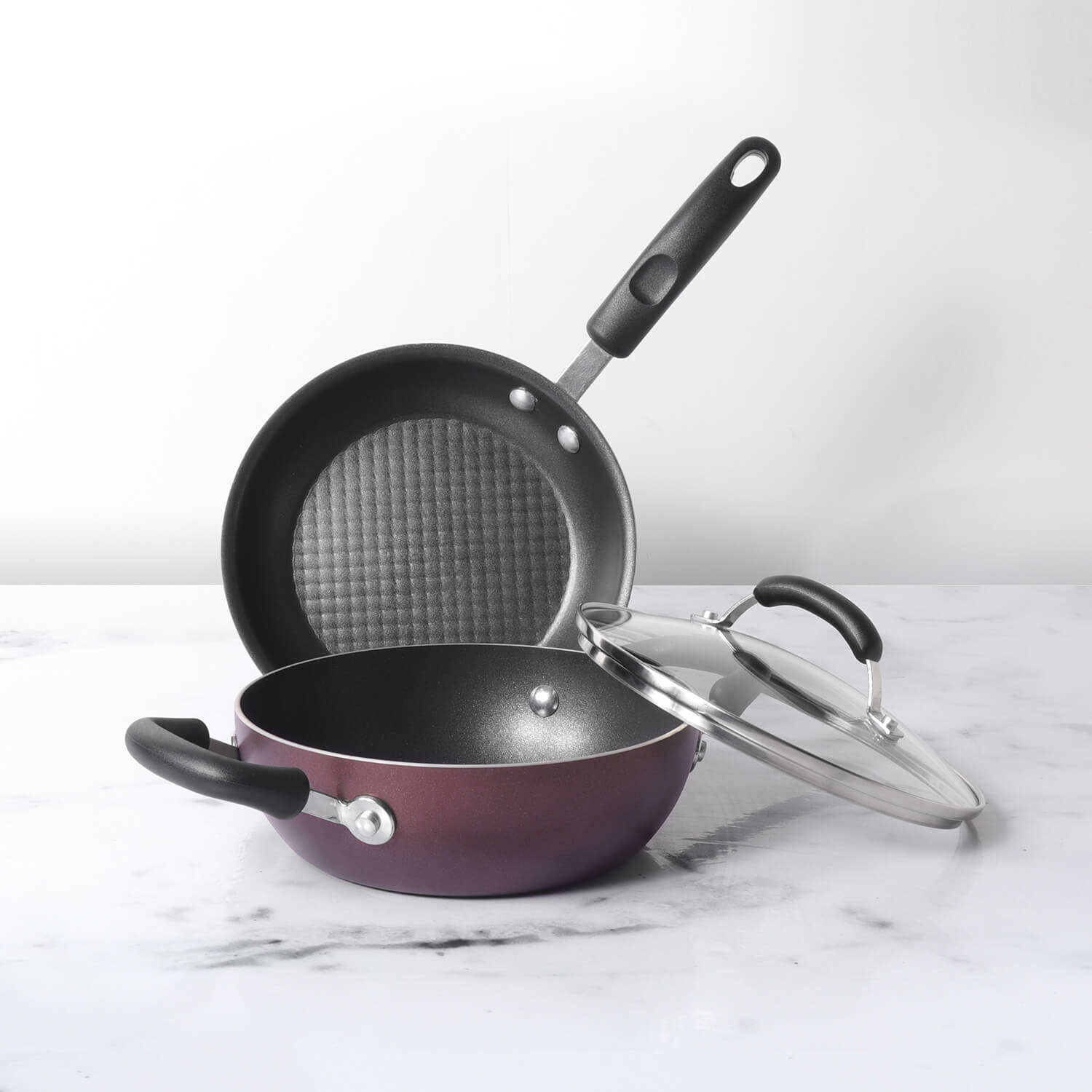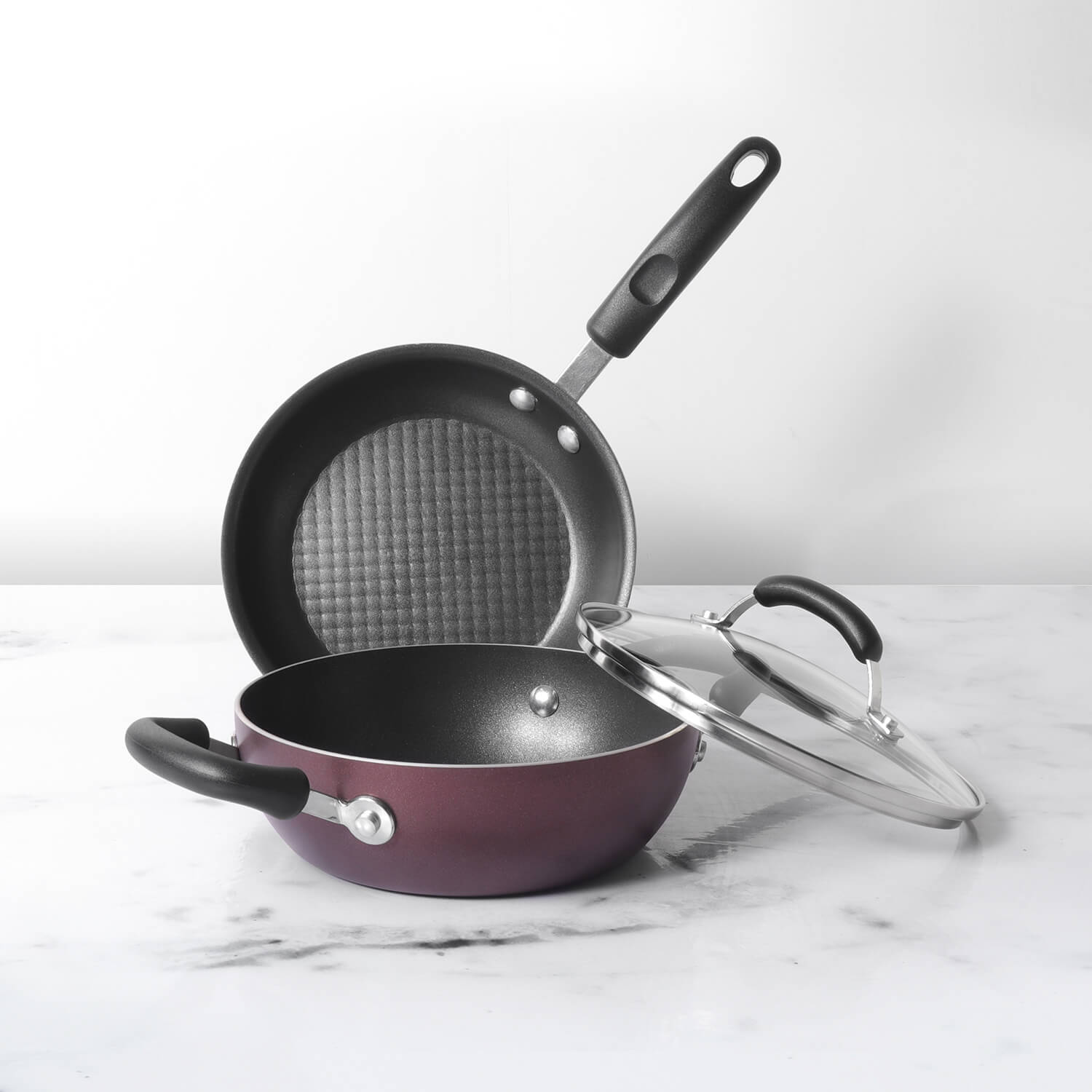Understanding the health benefits of low-oil cooking with nonstick cookware is essential for individuals seeking to adopt healthier cooking practices. By minimizing the use of oils and fats in cooking, nonstick cookware offers several health advantages. Firstly, it helps reduce calorie intake, making it easier to manage weight and prevent weight-related health issues. Additionally, low-oil cooking with nonstick pans can lower the consumption of saturated fats, which are linked to heart disease and other health conditions. Furthermore, this cooking method preserves the natural flavors and nutrients of ingredients, ensuring that meals are both delicious and nutritious.
Table of Contents
Reduced Calorie Intake:
Low-oil cooking with nonstick cookware allows individuals to significantly reduce their calorie intake. By minimizing the need for added oils and fats, nonstick pans help lower overall calorie consumption in meals. This reduction in calories can be particularly beneficial for those looking to manage their weight or adhere to a calorie-controlled diet.
Lower Consumption of Saturated Fats:
Another health benefit of low-oil cooking with nonstick cookware is the decreased consumption of saturated fats. These fats, commonly found in cooking oils and animal products, are known to raise LDL cholesterol levels and increase the risk of heart disease. By using nonstick cookware, individuals can limit their intake of saturated fats, promoting heart health and reducing the risk of cardiovascular issues.
Preservation of Nutrients and Flavors:
Nonstick cookware helps preserve the natural flavors and nutrients of ingredients during the cooking process. Unlike cooking methods that rely heavily on oils and fats for flavor, nonstick cookware allows the true taste of ingredients to shine through. This preservation of nutrients and flavors ensures that meals are both delicious and nutritious, promoting overall health and well-being.
Enhanced Moisture Retention:
Low-oil cooking with nonstick cookware results in enhanced moisture retention in food. The nonstick surface of the cookware helps seal in the natural juices of ingredients, preventing them from drying out during cooking. This moisture retention not only improves the texture and taste of dishes but also enhances their overall palatability.
Promotion of Heart Health:
By reducing the consumption of saturated fats and cholesterol, low-oil cooking with nonstick cookware promotes heart health. Studies have shown that diets high in saturated fats are associated with an increased risk of heart disease. By using nonstick cookware to cook with minimal oils and fats, individuals can support their cardiovascular health and reduce the risk of heart-related issues.
Support for Weight Management:
Low-oil cooking with nonstick cookware can also support weight management efforts. By reducing calorie intake and limiting the consumption of unhealthy fats, individuals can create meals that are lower in calories and more conducive to weight loss or weight maintenance. This can help individuals achieve their weight loss goals and promote a healthy body weight.
Conclusion:
In conclusion, low-oil cooking with nonstick cookware offers a range of health benefits, including reduced calorie intake, lower consumption of saturated fats, preservation of nutrients and flavors, enhanced moisture retention, promotion of heart health, and support for weight management. By incorporating these cooking techniques into their culinary repertoire, individuals can enjoy delicious and nutritious meals while prioritizing their health and well-being.











Leave a comment